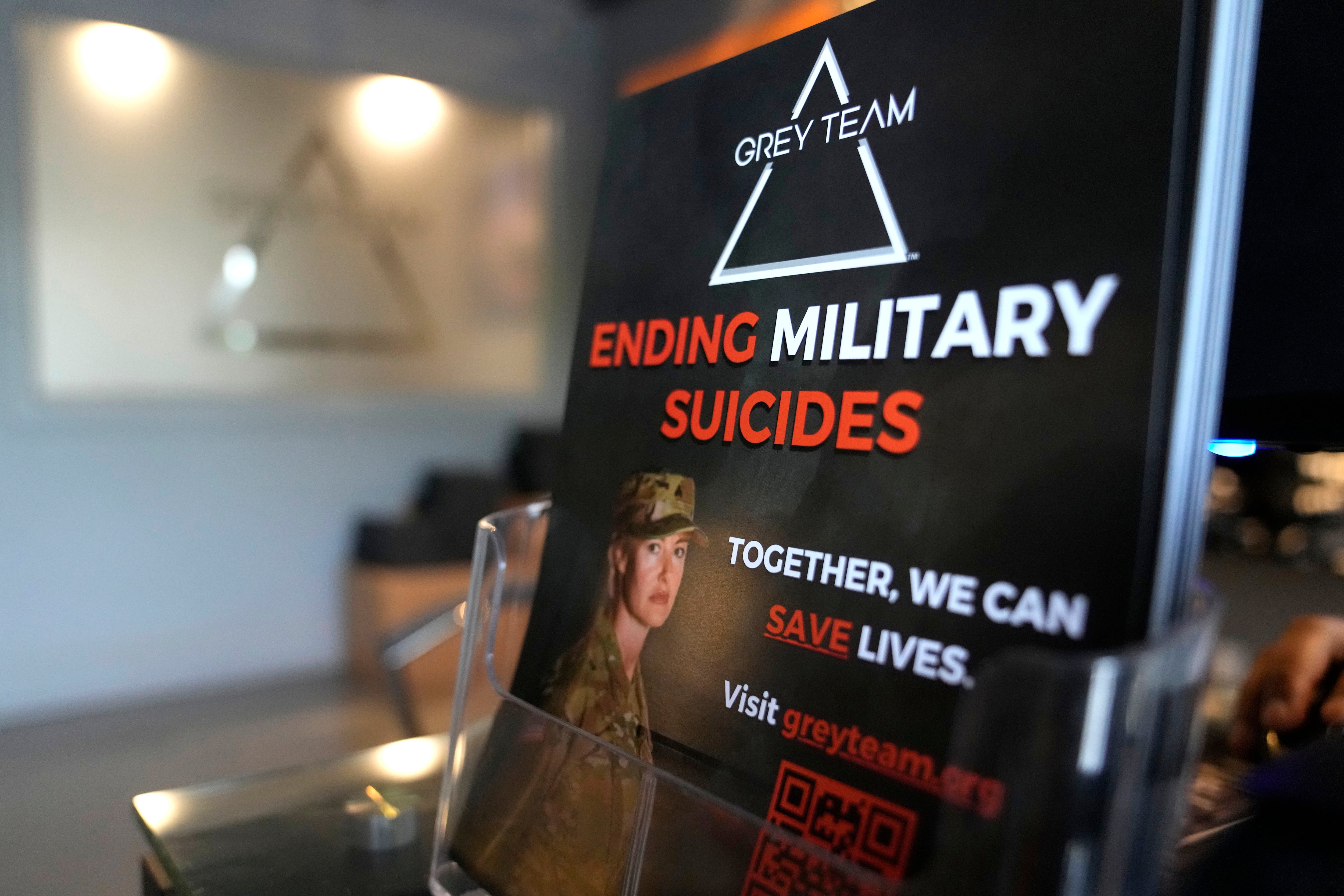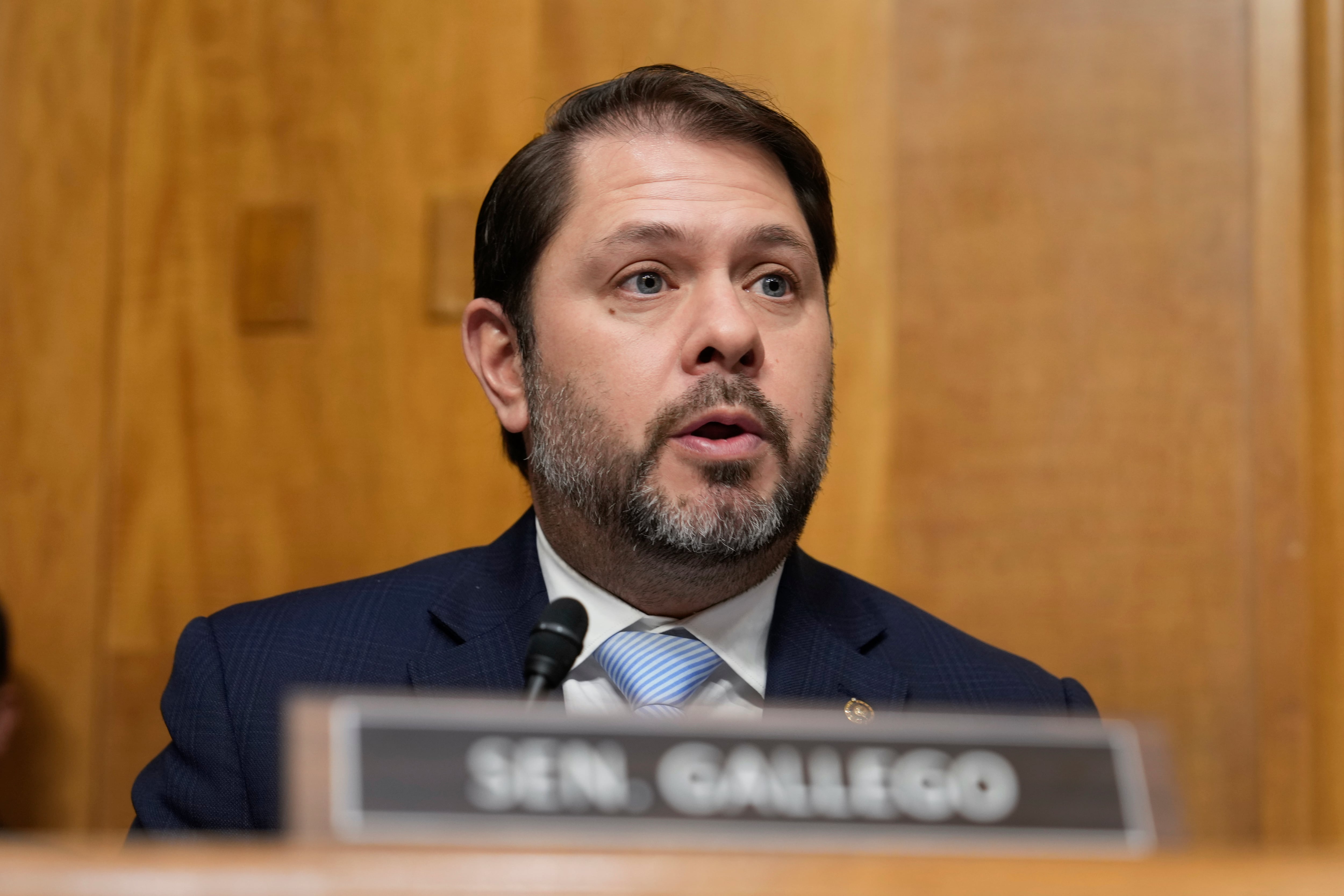Veterans in crisis or having thoughts of suicide, or those who know a veteran in crisis, should call the Veterans Crisis Line for confidential crisis support 24 hours a day, 365 days a year: Dial 988 then Press 1, chat online at VeteransCrisisLine.net/Chat, or send a text message to 838255.
The Department of Veterans Affairs would be forced to overhaul an artificial intelligence program that helps direct suicide prevention outreach under a bill introduced late last month by Sen. John Tester.
Tester, a Montana Democrat who chairs the Senate Veterans Affairs Committee, introduced the bill after an investigation by The Fuller Project and Military Times found the department’s algorithm prioritized white, male veterans. It also gave preference to veterans who are “divorced and male” and “widowed and male,” but not to any group of female veterans.
Military sexual trauma and intimate partner violence – both linked to elevated suicide risk among female veterans – were not taken into account. Tester’s legislation would require those factors to be incorporated within 60 days of the bill becoming law.
The most recent government data show a 24% rise in the suicide rate among female veterans between 2020 and 2021 — four times the increase among male veterans during that one-year period. It was also 10 times greater than the 2.6% increase among women who never served in the military.
“It is critically important that VA takes into account additional risk factors faced by women veterans,” Tester said in a statement. Tester, locked in a tight re-election fight that could determine control of the Senate, has touted his commitment to veterans over the course of his campaign.
RELATED

VA officials have previously defended prioritizing white, male veterans for outreach. The suicide rate for female veterans may be rising faster, they’ve said, but the suicide rate for male veterans remains considerably higher.
Matthew Miller, the agency’s executive director for suicide prevention said in May that a history of military sexual assault or intimate partner violence were not among the 61 variables used in the algorithm because they were not among “the most powerful for us to be able to predict suicide risk.”
The VA says it is working to update the algorithm to include risk factors that disproportionately impact women independently of the proposed legislation.
VA press secretary Terrence Hayes said in an email Wednesday that the agency is weighing including pregnancy, endometriosis, ovarian cysts, intimate partner violence, and military sexual trauma, among other factors.
“VA continuously works to improve our programs,” Hayes added. “As we update the model, it will be evaluated for performance and bias before it is deployed.”
The VA said it hoped to update the algorithm in early 2025.
Veterans groups, who have pushed for the VA to update the algorithm, welcomed Tester’s legislation and said that though the agency has engaged with them it needs to move faster.
“We have seen promises,” said Naomi Mathis, assistant legislative director of Disabled American Veterans, which has made improved care for female veterans a priority.
Mathis, a former Air Force staff sergeant who deployed to Iraq, noted that in surveys, a third of female veterans tell the VA that while in uniform, they endured sexual activity against their will.
“You’re not seeing them,” she said.
The issue of algorithmic bias has gained traction in recent years, with researchers finding many AI systems systematically favoring white men in their functions.
Both Presidents Donald Trump and Joe Biden issued executive orders to promote transparency and accountability for AI products, a process that can be difficult given increased reliance by researchers on systems that ostensibly teach themselves and create their own processes that may not be explainable. The VA has identified more than 100 programs covered by those presidential decrees.
Aaron Glantz is a fellow at the Center for the Advanced Study of the Behavioral Sciences at Stanford University, where he is incubating an initiative to promote resilience among investigative journalists. Contact him at afglantz@gmail.com.





